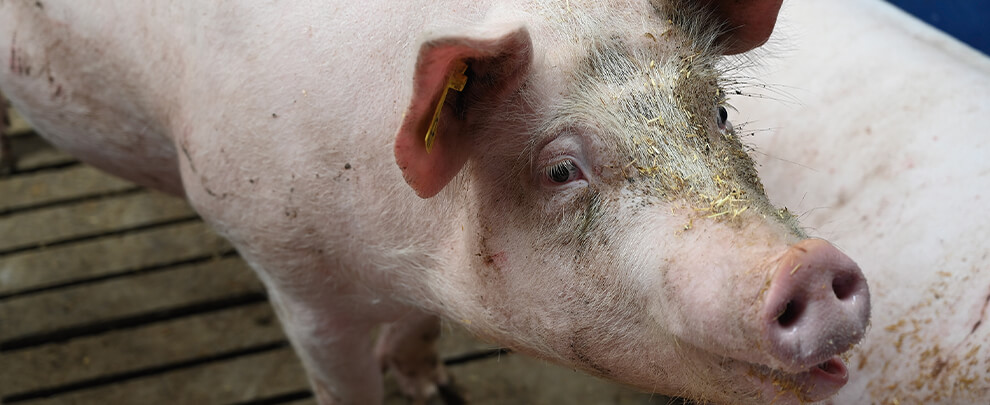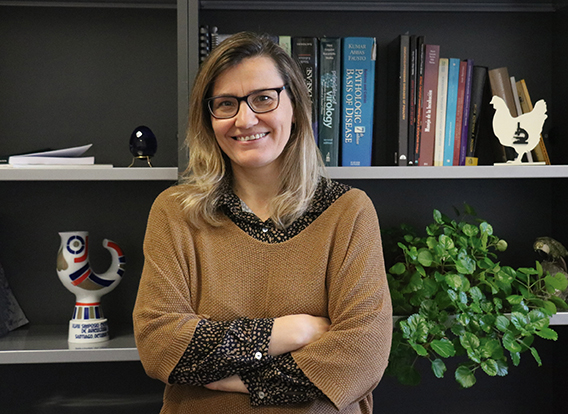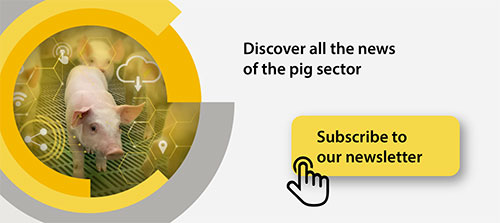Blog
Blog

N. Majó: "The one-health approach will improve animal welfare"
08th July 2021 - News
The spread of COVID-19 has highlighted the importance of addressing health challenges from a comprehensive perspective. Aware of this, the One Health Commission has been established by the College of Veterinarians of Catalonia (CCVC). This agency aims to publicise and visualise a single health (human, animal and environmental) concept. In this committee professionals from different fields work to enhance a more holistic understanding of health. One of its members is Natália Majó. We talked with her about the first months of this committee and the challenges it faces.

Natàlia Majó, veterinarian at the One Health Commission. Photo: Natàlia Majó.
How was the One Health Commission born?
The One Health concept has been in existence for several years. In 2010, there was already a joint positioning of supranational institutions such as the OIE, FAO, and WHO related to this concept and the need for health professionals to work as a whole. Since then, several initiatives have allowed the idea to become increasingly better known, but it has been since the COVID-19 pandemic that it has been highlighted. Furthermore, we have seen that about 60% of infectious diseases that end up affecting humans have an animal reservoir, so zoonosis remains a public health challenge. To further this matter, we promoted this commission from the College of Veterinarians of Catalonia, born at the end of last year.
What's your goal?
So far, we have held meetings to define future actions. We have promoted a first training course on the sensible use of antibiotics, organised by CCVC by veterinarians working with production animals. Our purpose is to work primarily from this more comprehensive vision of single health and make it known. We want to disseminate specific aspects where the concept of single health is essential, such as antimicrobial resistance. This topic is being worked on from this more holistic view, studying its impact on humans, animals and the environment, as this is an issue of great concern in all three areas.
Who is part of this commission?
It is currently composed of Lorenzo Fraile, professor at the Faculty of Veterinary Medicine of the University of Lleida, Maite Martín, dean of the Faculty of Veterinary Medicine of the Universitat Autonoma de Barcelona, Maria Angels Calvo, professor in Veterinary Medicine, and myself, Natélia Majó, PhD in Veterinary Medicine. In this committee, we have gathered professionals in the veterinary arena. Still, the intention that exists on the part of the board of the College of Veterinarians is that medical and environmental professionals are included and that they are incorporated according to the needs that arise. We want all professionals to communicate to have a positive impact on health-related issues.
"We have seen that about 60% of infectious diseases that
end up affecting humans have an animal reservoir".
Why is it necessary to address diseases from a One Health viewpoint?
As research progresses, it has been known that many diseases are interrelated. Without going any further, we know that COVID-19 can infect animals, that the virus can be transmitted between them, and that, in some cases, it could pass on to humans. Studying this problem hesitantly means that specific issues are not addressed as effectively as possible. With the experience provided by professionals in all three fields, we can make it easier for these problems to be solved more quickly. In fact, in other countries where this concept is more advanced, we already find veterinarians in public health policy decision-making positions. This shows that health problems need to be addressed from a single health perspective.
What impact can this comprehensive vision have on swine production?
The trend towards a single health is taking root slowly. From the swine production sector and other productive sectors, we must be aware that diseases can be transmitted from animals to humans and vice versa. In this sense, we will have to be stricter in controlling these pathologies. For the swine species, topics such as swine flu or antimicrobial resistance are already being investigated. We must be aware that these diseases can have a significant impact on production. Therefore, we must be more rigorous in their control and provide more resources for research, broadening their vision to improve diagnoses. Implementing the one health concept does not have a visible impact a priori but is a model that will make ideas and ways of doing change.
Speaking of antimicrobial resistance, what does One Health propose?
Swine farms are making a great effort to reduce antibiotic use. However, this reduction should be accompanied by several measures to help minimise the impact on production and improve animal health. These measures will need to be aimed at improving animal welfare, improving their feeding, implementing effective biosecurity measures, etc., so that they are less likely to develop diseases. The single-health approach will enhance animal health and welfare and help minimise antimicrobial use.
"We must work together to respond to the difficulties and diseases
that will appear among all health professionals,
as we have now seen with the coronavirus".
What can pork veterinarians do about this?
Veterinarians should not do much more than they are already doing. There are many challenges regarding animal health that we already know of and that are important. For example, we know that we should reduce treatments with these drugs by continuing with the aforementioned antimicrobial resistance. This is an objective already set by many production companies in the pork sector. It must be worked on, as reducing these resistances will not only increase the farm where it is being developed but also in general. Issues like this are having an increasing impact.
What future challenges might the One Health Commission face?
We have taken on the challenge to spread the message of this comprehensive health vision. Therefore, we must work together to respond to the difficulties and diseases that will appear among all health professionals, as we have now seen with the coronavirus. Thanks to research in different areas, the condition has been able to be monitored relatively quickly. The fact that there is a vaccine just one year after the pandemic emerges is a spectacular success. We intend to organise different conferences that address paradigmatic areas of one health concept to move forward in this way.








